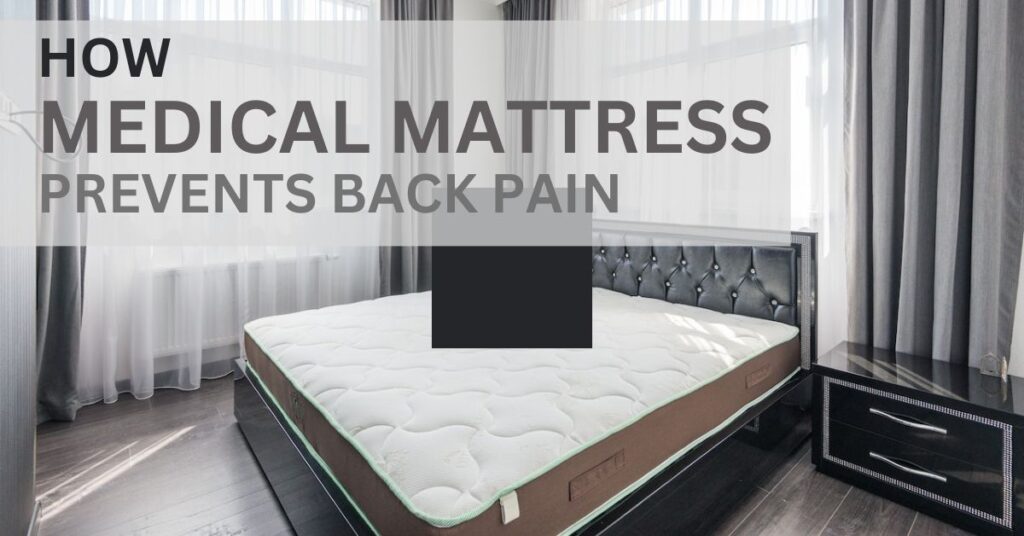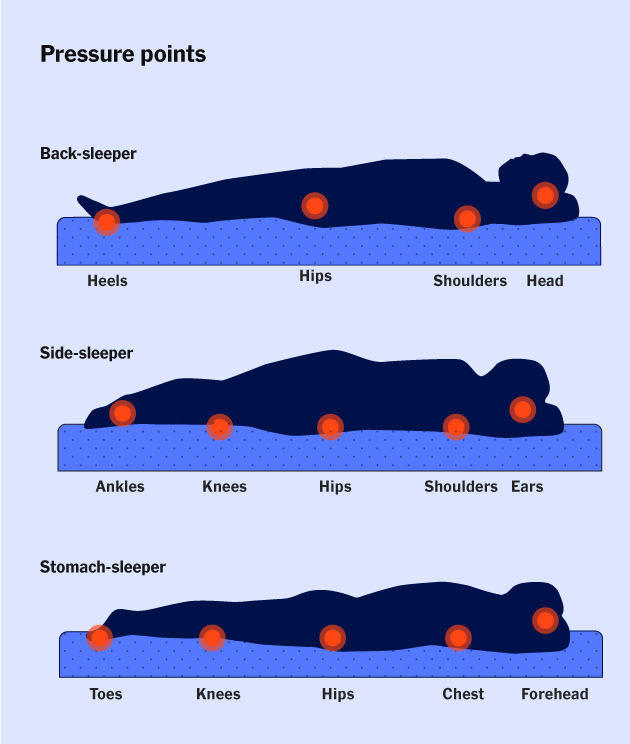A good night’s sleep is essential for overall well-being, and the importance of a comfortable and supportive mattress cannot be overstated. For those who suffer from back pain, finding the right mattress becomes even more crucial. Enter medical mattresses – specially designed to provide therapeutic sleep by addressing back pain and promoting spinal alignment.
In this article, we will explore how medical mattresses work to prevent back pain and improve sleep quality. From advanced materials to innovative features, these mattresses offer a range of benefits that go beyond conventional bedding. So, click on to discover the secrets of therapeutic sleep and how a medical mattress can be a game-changer for your spinal health. Your journey to a pain-free and restful night’s sleep begins here.
1:Supportive Materials: Medical mattresses are typically made from high-quality, supportive materials such as memory foam, latex, or hybrid combinations that conform to the body’s shape and distribute weight evenly. This helps reduce pressure points and maintain proper spinal alignment.
2:Spinal Alignment: A key feature of medical mattresses is their ability to promote proper spinal alignment. They aim to keep the spine in a neutral position, allowing the natural curvature of the spine to be supported during sleep.
3:Pressure Relief: These mattresses are designed to relieve pressure on sensitive areas like the hips, shoulders, and lower back. By reducing pressure points, the risk of developing back pain is minimized.
4:Motion Isolation: Medical mattresses often have good motion isolation properties, which means movements from one side of the bed are less likely to disturb the other person. This can lead to a more restful and undisturbed sleep, allowing the back to recover properly.
5:Edge Support: A sturdy edge support system prevents sagging around the edges of the mattress, ensuring that the entire sleep surface remains supportive. This can be particularly helpful for individuals who sit or sleep near the edge of the bed.
6:Temperature Regulation: Some medical mattresses are designed with materials that offer improved breathability and temperature regulation, reducing the risk of discomfort during sleep, which can lead to muscle tension and back pain.
7:Customization: Many medical mattresses come with different firmness options to cater to individual preferences and specific back support needs. Personalizing the firmness can help users find the best fit for their back health.
8:Durability: Medical mattresses are often built with durability in mind, maintaining their supportive qualities for an extended period. Regular mattresses tend to lose their structural integrity faster, which can lead to inadequate support and contribute to back pain.
Anti-Allergenic Properties: Some medical mattresses come with hypoallergenic covers or materials that help prevent allergies and respiratory issues that might lead to back pain indirectly.
Professional Recommendations: Medical mattresses are often recommended by healthcare professionals, including orthopedic specialists, chiropractors, and physical therapists, who consider the unique needs of patients with back pain.
It’s important to note that while a medical mattress can help prevent back pain, maintaining good posture, regular exercise, and other lifestyle factors also play a significant role in supporting back health. If you’re experiencing back pain, it’s always advisable to consult with a healthcare professional for personalized advice and recommendations.


